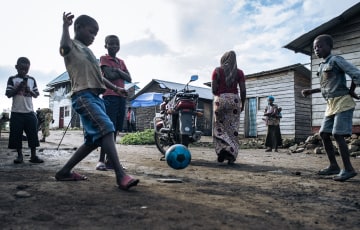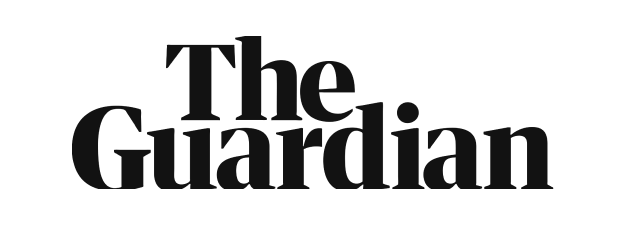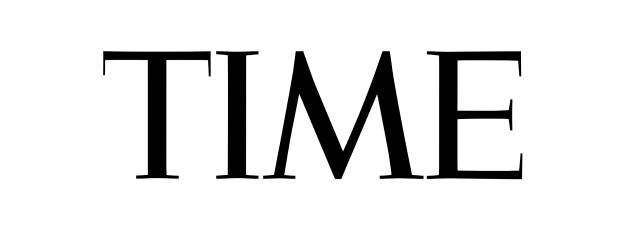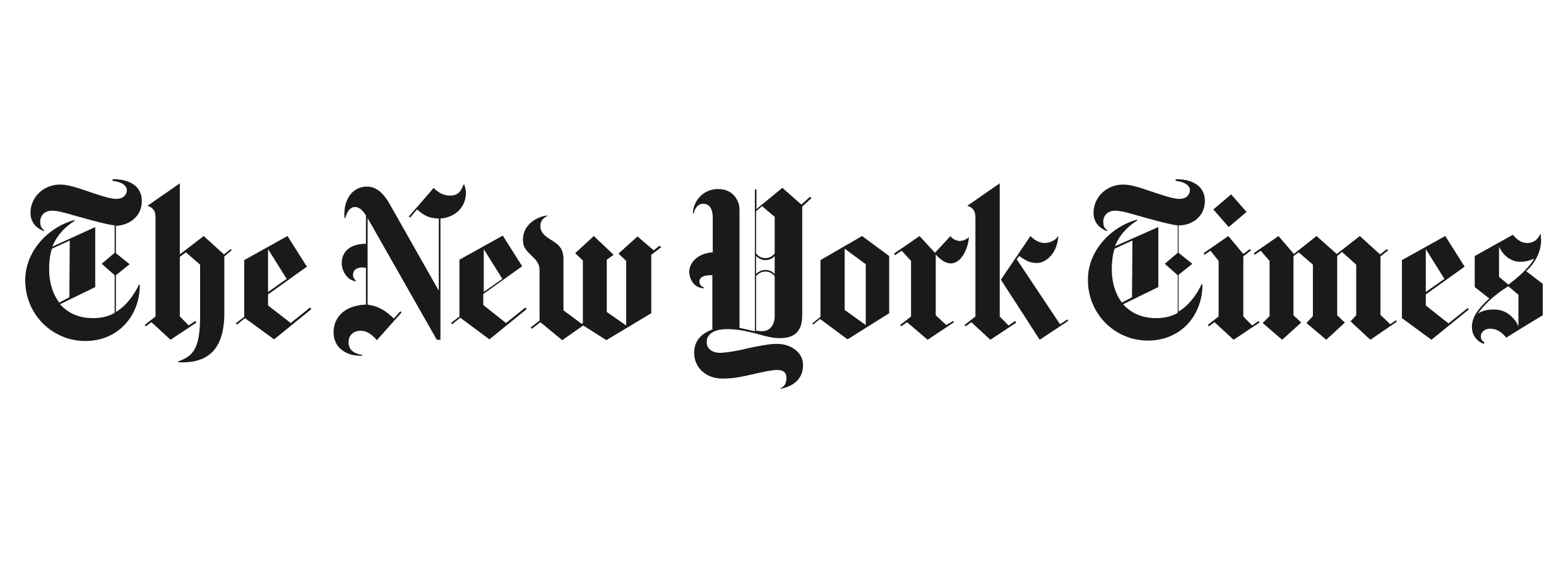Panzi Foundation helps Congolese survivors of sexual violence get the healing, justice, community, and future they deserve.
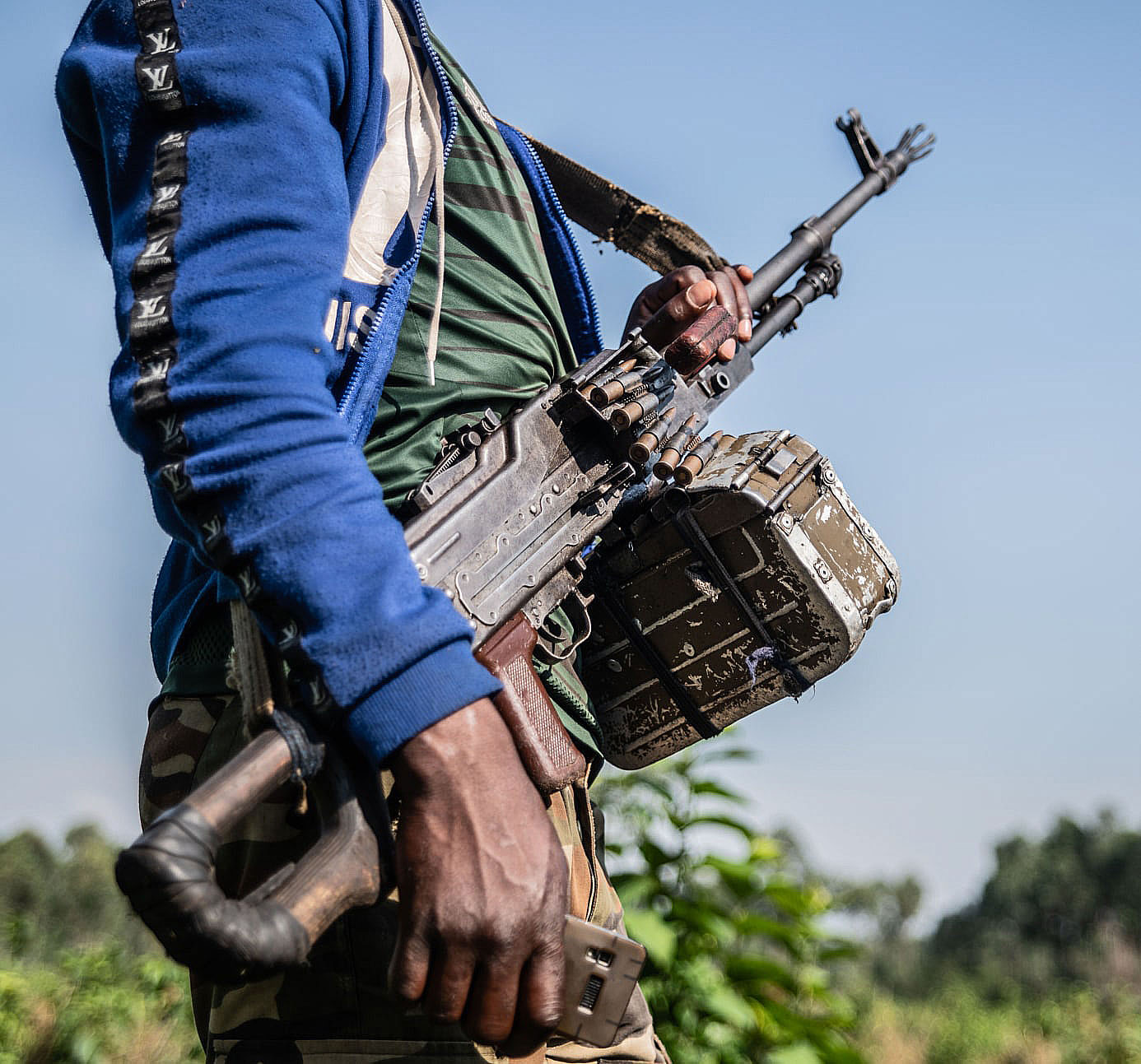
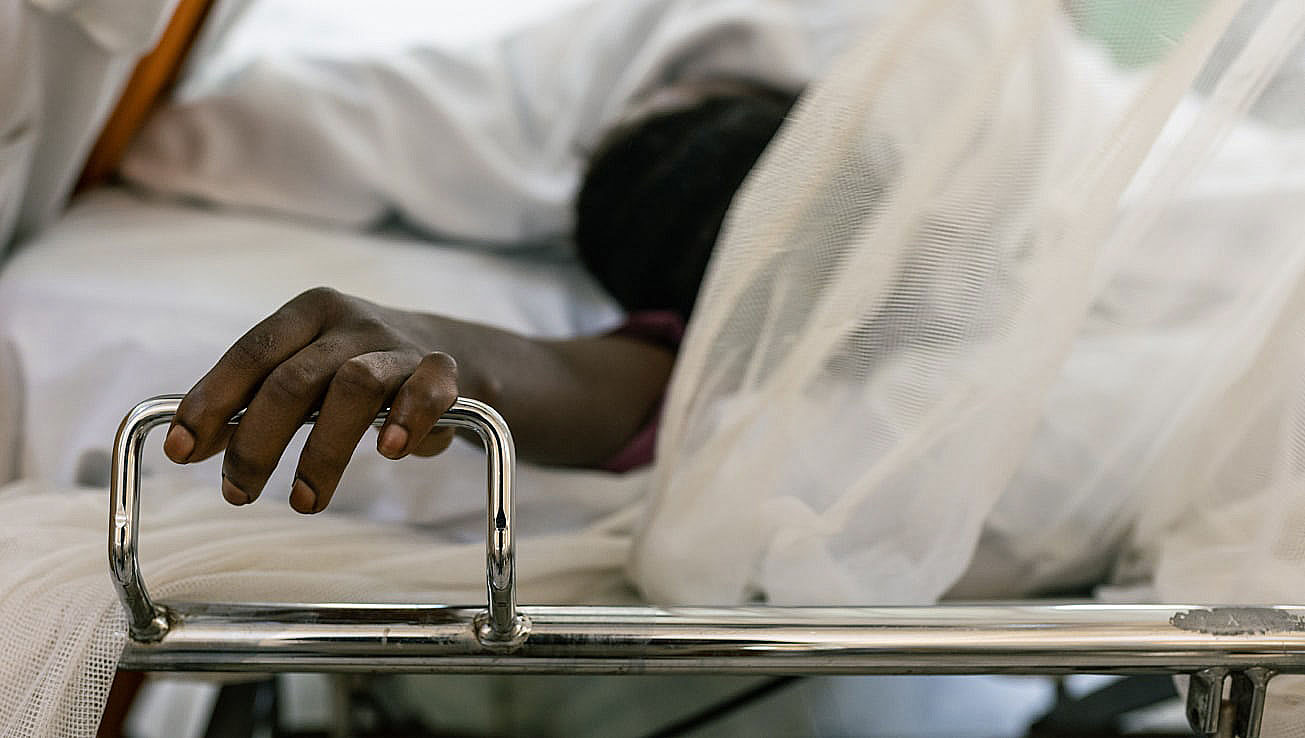
in the DRC,
RAPE IS A DELIBERATE TACTIC OF WAR.
TOGETHER, WE’RE PUSHING BACK.
Countless Congo women and girls experience sexual violence every day in the DRC, a tragedy which is heightened by the ongoing conflict.
But for more than 25 years, Panzi has not only mended survivors’ bodies and delivered their babies—we’ve supported them as they boldly reclaim their lives, against all odds.
TOGETHER, WE’RE PUSHING BACK.
Countless women and girls experience sexual violence every day in the Congo, a tragedy which is heightened by the ongoing conflict.
But for more than 25 years, Panzi has not only mended survivors’ bodies and delivered their babies—we’ve supported them as they boldly reclaim their lives, against all odds.
After the sexual violence, I didn’t feel like the same person. I thought I would die. I felt like I didn’t know how to describe what I was feeling. I didn’t even understand myself...
After the sexual violence, I didn’t feel like the same person. I thought I would die. I felt like I didn’t know how to describe what I was feeling. I didn’t even understand myself...
After the sexual violence, I didn’t feel like the same person. I thought I would die. I felt like I didn’t know how to describe what I was feeling. I didn’t even understand myself...
OUR IMPACT SINCE 1999
Panzi Hospital & Foundation exists to reduce the prevalence and impact of sexual and gender-based violence through holistic care and community outreach, in order to promote a more equitable and dignified future for all.
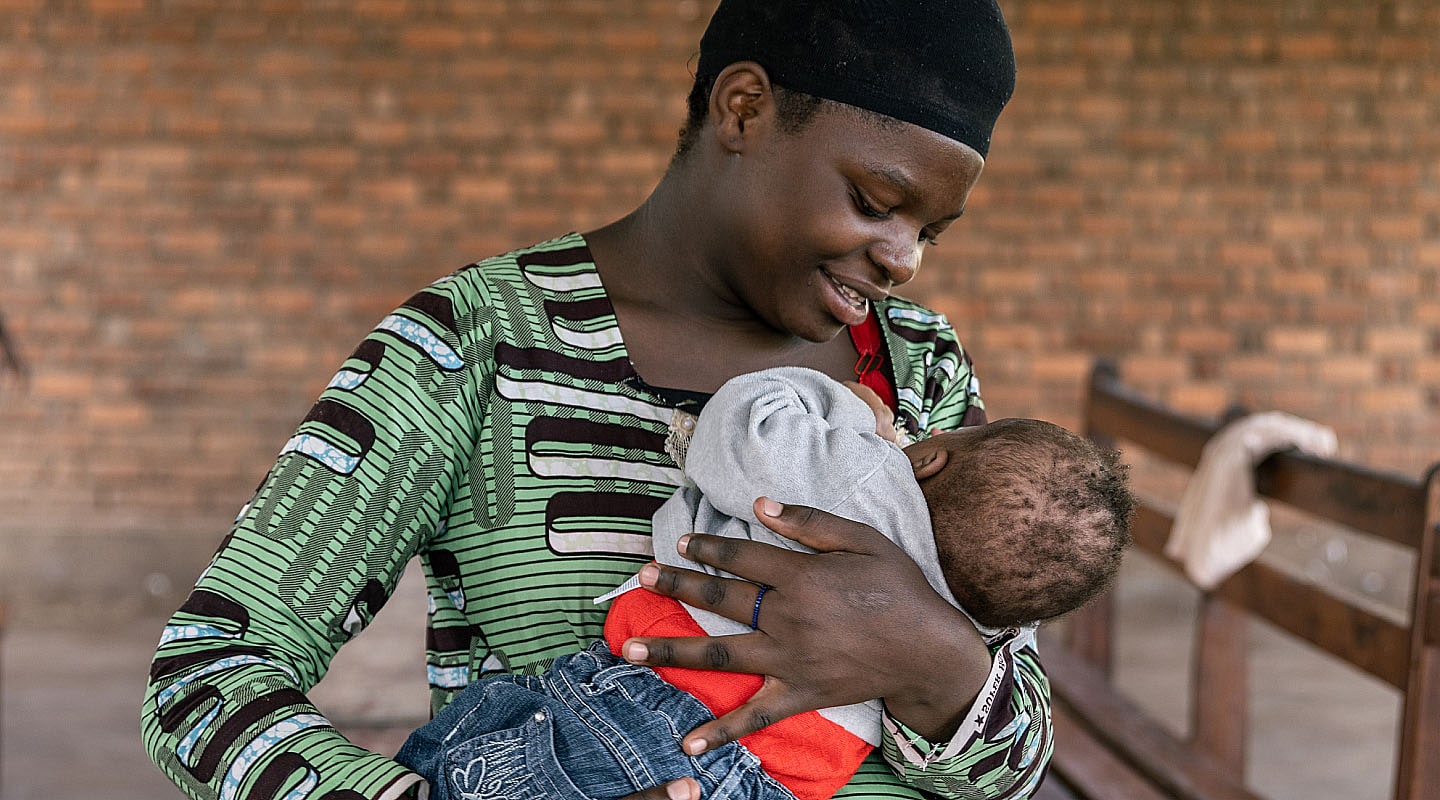
more likely
to survive
giving birth at a Panzi facility compared to the national average
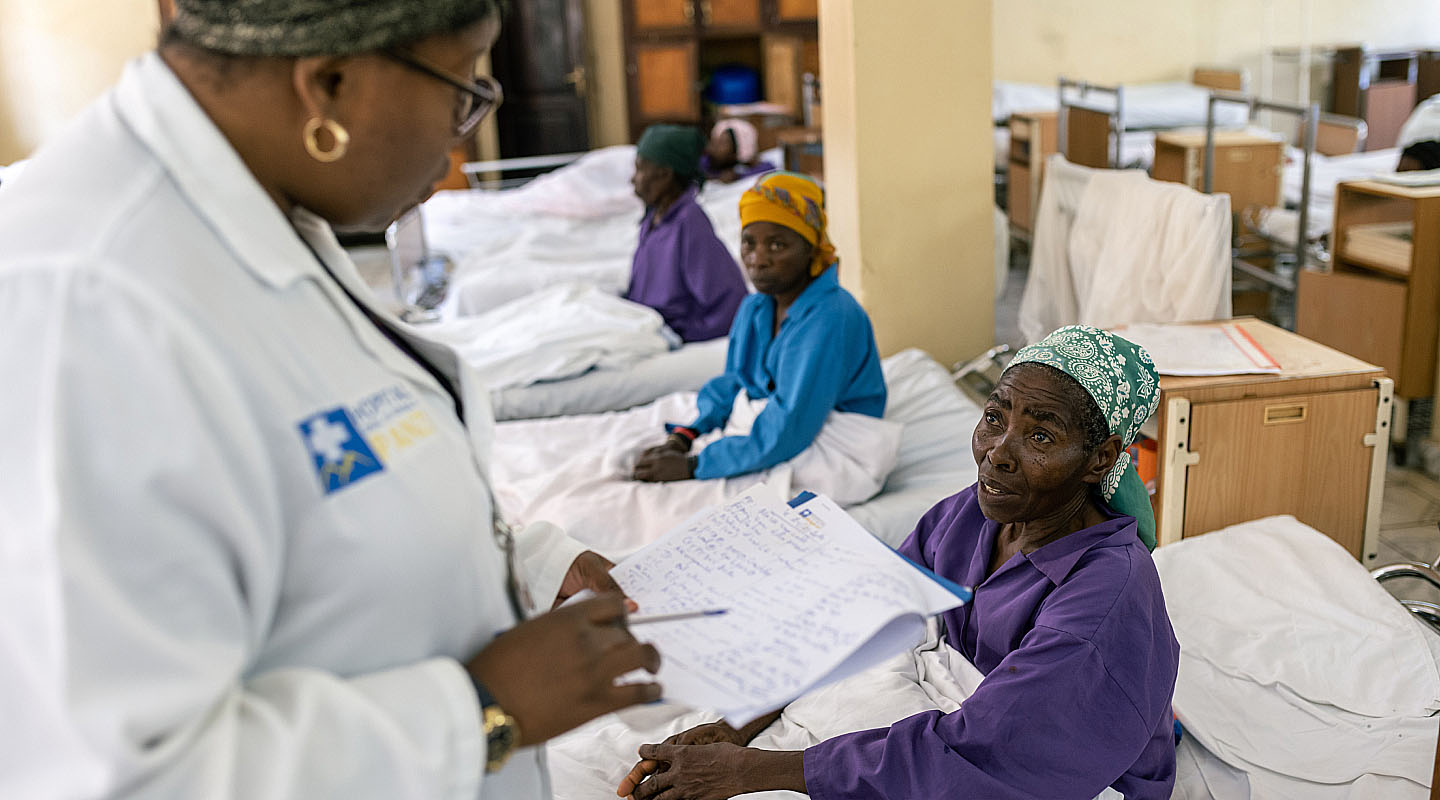
survivors treated across all programs at Panzi Hospital & Foundation since 1999
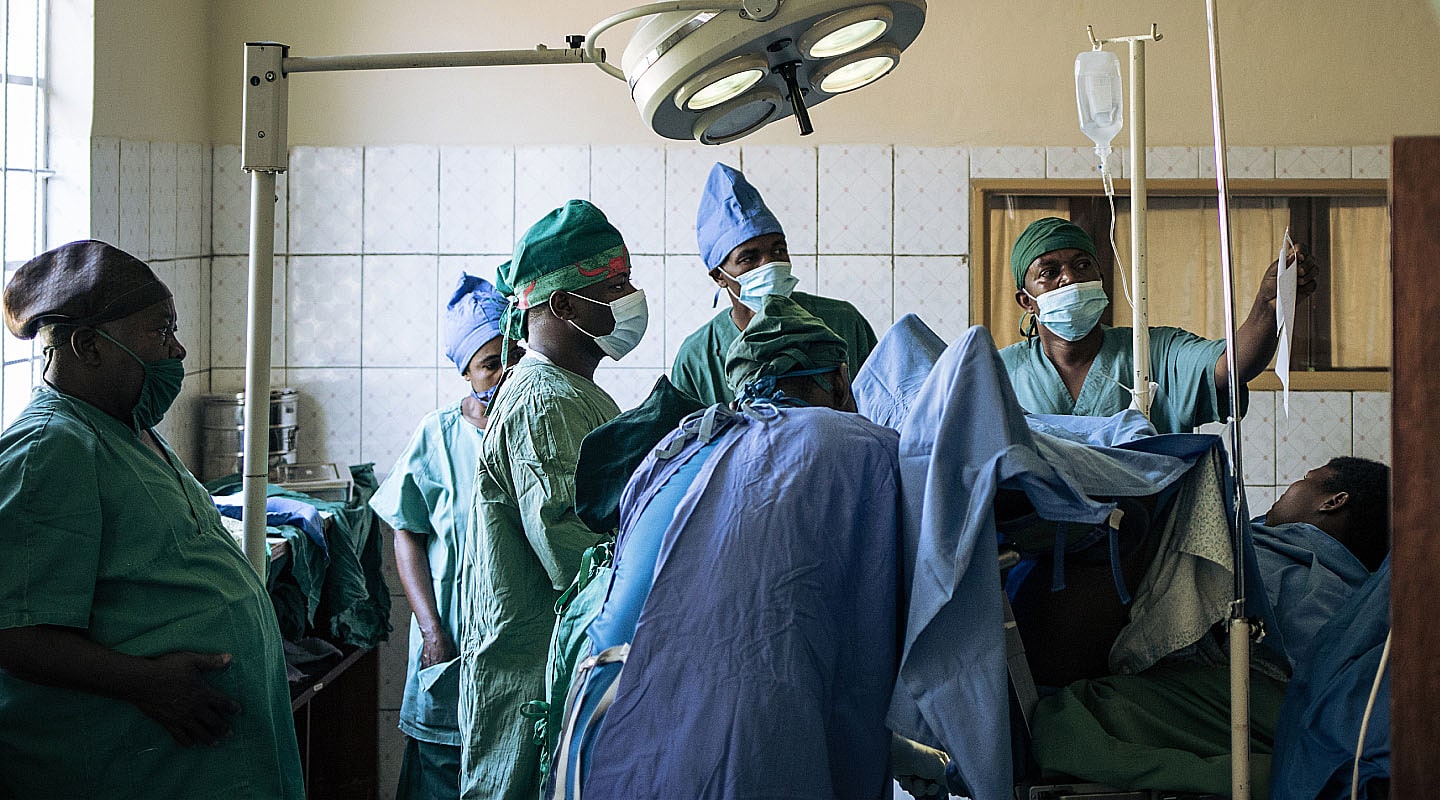
surgeries for women with complex gynecological injuries over 25 years
no matter how difficult and hopeless the situation, with determination there is always hope at the end of the tunnel.
Holistic care
The Panzi model is a world-renowned four-pillar holistic healing model that aims to address the full range of needs of victims of sexual violence.
Holistic care
The Panzi model is a world-renowned four-pillar holistic healing model that aims to address the full range of needs of victims of sexual violence.
Latest News
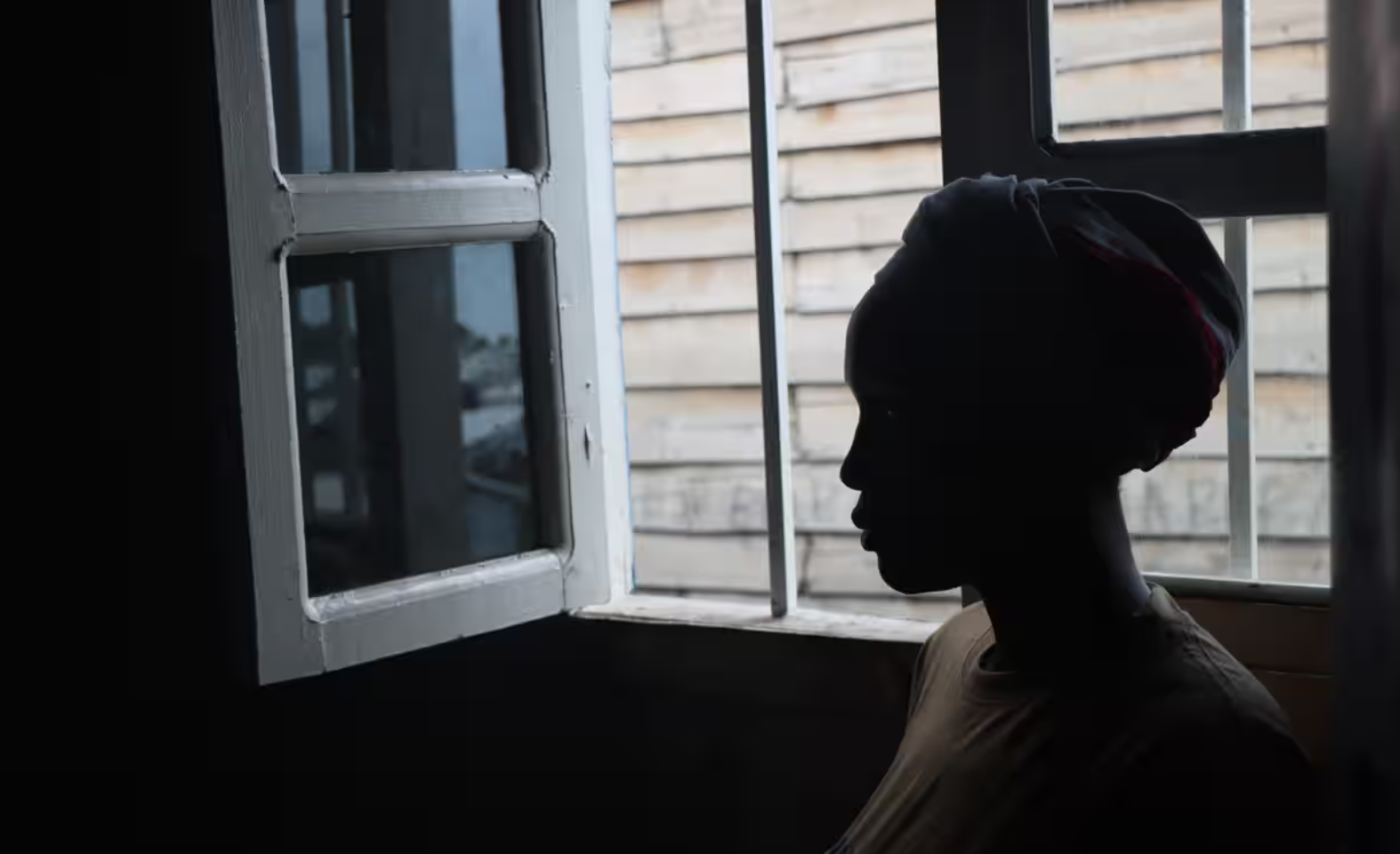
Dr. Denis Mukwege Call: “Stop the massacres of the Congolese, peace is possible.”
The macabre toll of the recent fighting between the Congolese army and the Rwandan armed forces and their M23 auxiliaries in the city of Goma is slowly emerging. According to the World Health Organization report, as of January 31, 2025, 773 lifeless bodies have been counted and others are still strewn along the avenues in an advanced state of decomposition. In addition to these deaths, there are approximately 3,000 injured, without sufficient or effective assistance.
This horrible human butchery adds to the statistics of more than six million men, women and children killed over three decades in these endless wars imposed on the Congolese people.
Once again, the international community will not say that it did not know. For years, UN reports have pointed out Rwanda’s responsibility in organizing and conducting these wars, but to date, nothing significant has been done to stop these serious violations of international and humanitarian law . On the contrary, the European Union and several Western countries have maintained their cooperation with Rwanda and continue to indirectly finance, with millions of dollars, its warlike and deadly expeditions in the DR Congo as well as the plundering of its mineral resources.
For decades and again in recent weeks, I have continued to alert and mobilize international opinion on the urgency of imposing peace in the DR Congo and in the African Great Lakes region, but in vain. Compared to the intervention of the West in the war in Ukraine, that of Congo is a neglected war and Congolese lives do not objectively have sufficient value to merit attention.
It is the policy of double standards and two-speed humanism that we have decried and denounced on several occasions.
And yet solutions exist to permanently stop this catastrophe.
First of all, there is an urgent need to cut military and financial aid to Rwanda and impose economic sanctions.
Then, the Peace, Security and Cooperation Framework Agreement for the DRC and the region, known as the Addis Ababa Framework Agreement, signed on February 24, 2013 by 11 countries (DR Congo, Rwanda, Burundi, Uganda, Angola, Tanzania, Zambia, South Sudan, Central African Republic) joined by Kenya and Sudan on January 31, 2014 as well as the UN, the African Union, the ICGLR, the SADC and sponsored by the European Union, the United States, the United Kingdom, Belgium and France, had already marked the path to a just and lasting peace in the African Great Lakes sub-region. It is more than urgent to implement its recommendations.
Finally, since the exploitation of natural resources is the real crux of the matter, for weeks and right now, I have been in Europe to raise awareness among governments, international institutions, businesses and civil society organizations about the importance of the legal, peaceful and win-win supply of these resources with a view to ” Business for Peace ” which promotes the sustainable interest of the Congolese people at the same time as that of businesses that want the strategic raw materials that the Congolese subsoil abounds in. This is why, in response to and in support of the initiative of the Peace Pact of the Catholic and Protestant Churches of Congo (CENCO-ECC), I renew my call for the organization of an ” International Conference on Sustainable Peace in the DR Congo and the African Great Lakes Region “.
I strongly condemn this new attack by Rwanda-M23 and the massacres that followed,
I strongly condemn the complicit silence and inaction of the international community in the face of the serious violations of human rights and humanitarian rights committed in the DR Congo,
I call on the Congolese people to unite around peace through the initiatives of CENCO-ECC and an international Conference on Peace,
I express my compassion to the people of North Kivu and Goma in the painful ordeal they are going through,
I extend my deepest condolences to the families of our fallen soldiers and to all those who have lost a loved one in this war,
I express my full support to the people of South Kivu and Bukavu who live in fear, haunted by the spectre of a war that is dangerously approaching.
I am committed to relentlessly continuing my national and international advocacy for Peace in the DR Congo and in the African Great Lakes region.
Hold on my dear compatriots, GOD IS FOR US.
Oslo, February 2, 2025
Dr. Denis Mukwege
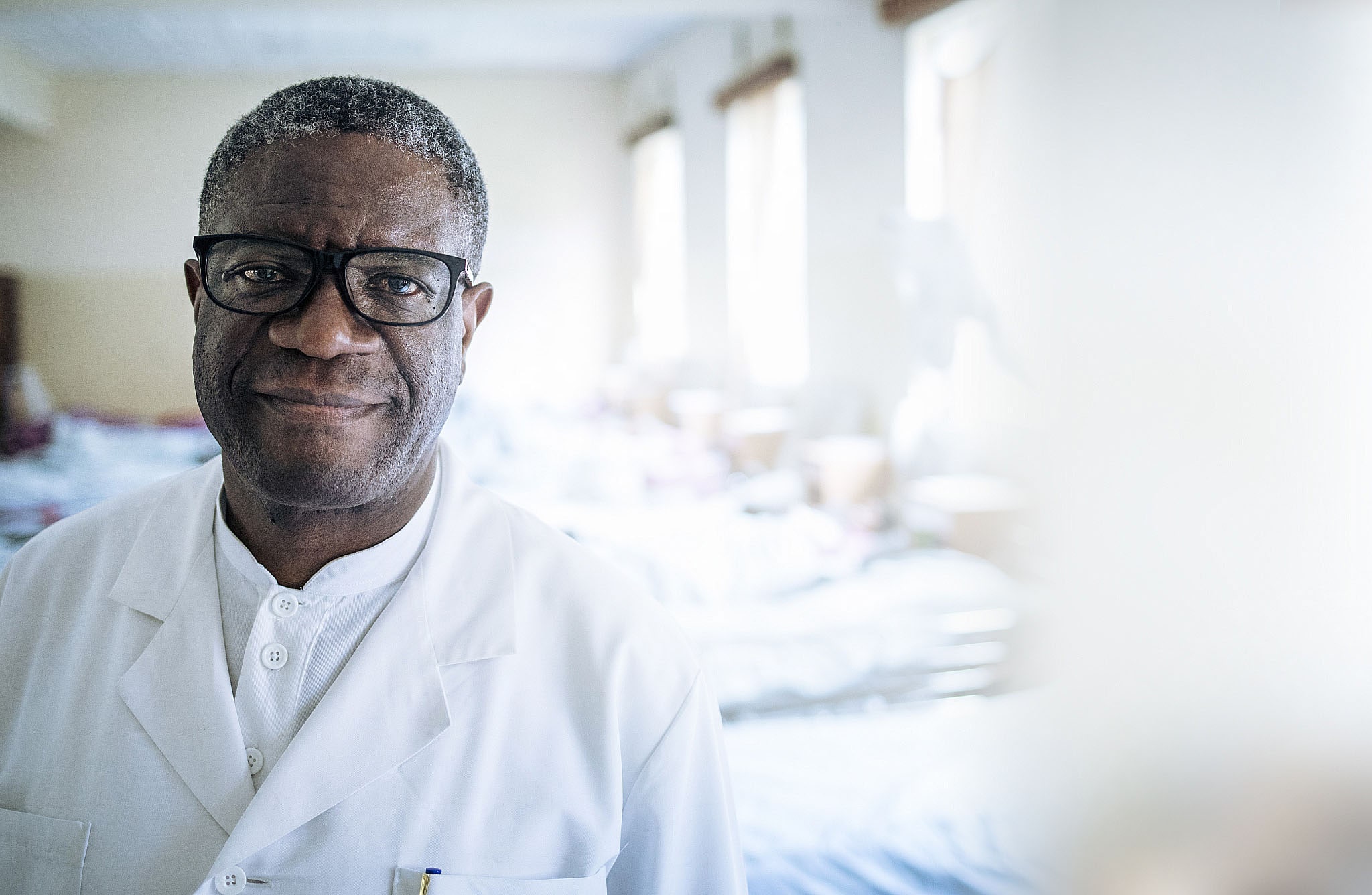
Statement following the publication of the 27 December 2024 letter Addressed to the Presidency of the Security Council By the Group of Experts of the Democratic Republic of the Congo
I am very concerned after reading the latest report of the United Nations Group of Experts on the Democratic Republic of the Congo. Despite the agreement for a humanitarian truce and a ceasefire, the Kigali regime continues to flout international law and pursue its policy of territorial expansion with its AFC/M23 coalition auxiliaries supported and controlled by 3,000 to 4,000 RDF elements. In a flagrant violation of the territorial integrity and Congolese sovereignty, those troops use sophisticated military equipment and high-tech weapons in the territories of Nyiragongo, Rutshuru, and Masisi, in the North Kivu Province.
The war of occupation and aggression is gradually taking on the appearance of an annexation by foreign forces, with the establishment of a parallel administration, similar to that of a State. It controls the conquered territories, in particular the Rubaya area, whose mines constitute one of the largest sources of coltan in the world.
The experts mandated by the Security Council have reported, with supporting evidence, that the AFC/M23 coalition exercises a monopoly on the fraudulent extraction, trade and illegal export of minerals from Rubaya to Rwanda. This causes the most significant recorded contamination of the supply chains of “3T” minerals (tin, tantalum and tungsten) in the Great Lakes region for the last ten years.
Experts estimate that the AFC/M23 coalition controls the trade and transport of approximately 120 tons of coltan per month and that the tax on the production and trade of Rubaya coltan generates at least USD 800,000 per month for the occupying forces.
Faced with the critical situation prevailing in eastern DRC, we once again urge the community of States to no longer accept superficial condemnations and empty words. Strong sanctions must be adopted against the actors of destabilization. Immediate and decisive measures must be taken to ensure that Rwanda ceases its support for the M23 and immediately withdraws its forces from Congolese soil.
It is time to put an end to this economic war and the illegal extraction and trade of strategic minerals in the heart of Africa if the economically developed world wants to pursue the energy transition and the fight against climate change in a clean and fair manner.
Bukavu, 01/09/2025
Dr. Denis Mukwege
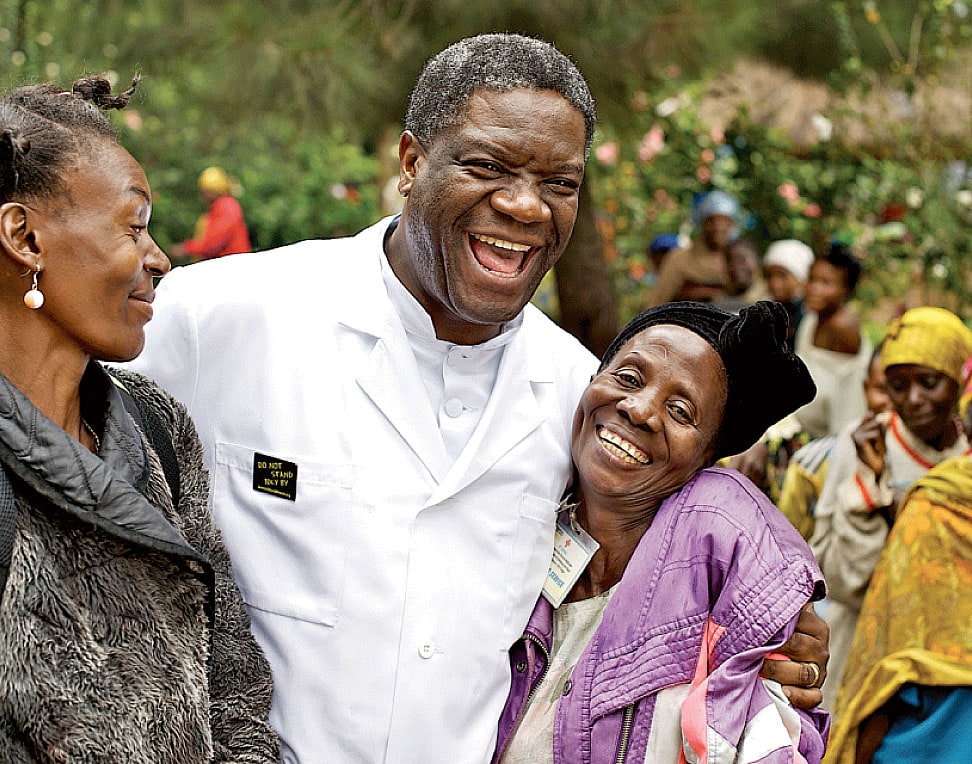
Message of support from Dr. Mukwege to the Appeal of the National Episcopal Conference of Congo (CENCO) and the Presidency of the Church of Christ in Congo (ECC) for the “Social Pact for Peace and Living Well Together in DR Congo and the Great Lakes”
December 31, 2024
Over the past three decades, the Congolese people have endured chronic violence and instability that have led to profound tragedy and suffering beyond comprehension.
The Democratic Republic of Congo (DRC) has been subjected to repeated wars of aggression and systematic violations of international humanitarian and human rights law, resulting in the deadliest conflict since the Second World War and one of the most severe humanitarian and displacement crises of modern times, with a quarter of the population facing hunger and over 7 million internally displaced people, the majority of whom are women and children.
The political economy of the war is deeply linked to the illegal exploitation and smuggling of Congolese natural resources by neighboring countries, and criminal gangs destabilizing the country’s eastern and northeastern provinces as “proxies” for certain major powers and various multinationals.
The peace agreements and the various attempts to find political solutions, from Lusaka to Sun City via Goma, have systematically sacrificed justice on the altar of peace. They have prolonged and aggravated instability by integrating elements of Congolese and foreign armed groups into the national security and defense forces. Moreover, these policies have not only allowed the enemies of peace to infiltrate our institutions but have also embedded indiscipline in the army and police, and legitimized armed violence by granting amnesties and even promotions to those who should be answering for their crimes before national and international justice.
Against this backdrop, armed conflict has never ceased, and over 100 national and foreign armed groups continue to operate with impunity, fueling the repetition of mass atrocities, while the DRC authorities have failed to establish state authority in large parts of its territory.
The deteriorating security situation and the worsening humanitarian crisis since 2021 following the resurgence of the M23 armed group supported by Rwanda and Uganda pose an existential threat to the DRC, while large swathes of North Kivu are administered by occupying forces. It also risks provoking a conflagration in the African Great Lakes sub-region. It threatens regional and international peace and security at a time when MONUSCO has begun to withdraw from the country, and despite the deployment of forces from the Southern African Development Community (SADC).
Like all peoples, the Congolese are entitled to peace and justice. Too much Congolese blood has been shed, but the escalation of the conflict and the appalling human rights situation remain largely forgotten, and the resulting humanitarian crisis is characterized by international neglect and underfunding, leading to large-scale human suffering and a disturbing depreciation in the value of human life.
Current diplomatic initiatives aimed at easing tensions and finding a political solution to the conflict (known as the Nairobi and Luanda processes, under the auspices of the East African Community and the African Union respectively) have reached an impasse. The donor community is failing to provide an effective response to the urgent humanitarian needs of the most vulnerable.
The time has come to call for strong political and diplomatic action and multilateral coordination, involving the private sector and civil society, to silence the guns and stop turning a blind eye to the humanitarian disaster unfolding in the eastern DRC.
Thus, we call for the reinvigoration of the Addis Ababa Framework Agreement for Peace, Security and Cooperation, signed in 2013. This agreement, billed as the Agreement of Hope because it was the first to “address the root causes of the conflict and end the recurring cycles of violence” in eastern DRC and the African Great Lakes region, with various states and institutions as co-guarantors, including the African Union, the European Union, Belgium, the United States of America, France and the United Kingdom and the support notably of the United Nations, and the World Bank, as part of the consolidation of a strategy for peace and development.
We also reiterate our call for the organization of an International Summit for Peace in the DRC in 2025. The main objective of the Summit is to place this forgotten conflict and neglected crisis at the top of the international community’s agenda by providing a high-level platform for dialogue and exchange of views with state and non-state actors to achieve a comprehensive, just and lasting peace in the DRC.
Invited state actors will include the Heads of State and Government of the DRC and the member countries of the ICGLR, particularly the signatories of the Addis Ababa Framework Agreement, representatives of the member governments of the International Contact Group for the Great Lakes Region, representatives of the countries of the organizations and institutions that are guarantors of the Framework Agreement (United Nations Special Envoy, African Union, International Conference on the Great Lakes Region and Southern African Development Community), representatives of United Nations programs and agencies, the World Bank and donors. In addition, given the economic dimension of the conflict, private sector players and companies active in the mining sector will also be invited to be part of the solution.
Indeed, given the accelerating and spectacular growth in demand for minerals essential to the energy transition, which will exacerbate geopolitical tensions and put the DRC under increasing pressure to supply its strategic resources in order to curb the climate crisis and advance a global transition to renewable energies, this so-called “green” energy transition offers a unique opportunity to promote peace through the “Business For Peace” approach. This approach changes the current paradigm of a war economy based on the illegal extraction and trade of conflict minerals, transforming them into a tool for co-prosperity, co-development and peace.
We are convinced that, thanks to the “Business for Peace” approach, global high-tech companies, some of which source, directly or indirectly, the minerals that result from the plundering of the DRC’s natural resources, would do well to get involved in promoting sustainable peace-building in the DRC, in order to access these same resources directly, without intermediaries, in a profitable, sustainable, secure and ethical way, without knowingly or unknowingly compromising themselves with the criminal exploitation of “blood minerals”.
By ensuring that their supply value chain is clean, respectful of human rights, these companies can help put an end to the criminal trafficking of the DRC’s natural resources, which fuels endless wars and decimates millions of men, women and children. By promoting a global framework of traceability, transparency and social responsibility, they can help advance justice, equity, local development and sustainable peace.
Finally, the DRC has become an obstacle to development in sub-Saharan Africa. The “Business for Peace” concept will enable the countries of the ICGLR and other African countries to develop trade with the DRC and other African countries through the DRC, which is today an obstacle to trans-African trade due to persistent insecurity in the center of Africa.
The expected outcomes of the Summit are:
1. Express solidarity and support for the Congolese civilian population, and launch an urgent appeal to meet the humanitarian needs of vulnerable groups and displaced persons.
2. Galvanize national and international political will and create momentum to end the violence by laying the foundations for a lasting peace in line with international law, the UN Charter and commitments under the Addis Ababa Framework Agreement.
3. Develop win-win partnerships and empower high-tech, mining and refining companies to promote responsible mining and trade for a just and sustainable energy transition and business practices conducive to peace, social and economic development and the protection of human rights and the environment.
4. Encourage the Congolese government to improve the business climate, promote good governance, and implement institutional and security sector reforms in line with the Addis Ababa framework agreements.
For all these reasons, we join our voice to that of the National Episcopal Conference of Congo (CENCO) and the Presidency of the Church of Christ in Congo (ECC) in appropriating the roadmap of the “Social Pact for Peace and Living Well Together in DR Congo and the Great Lakes”, and invite all Congolese to appropriate, in turn, this initiative, for in this year 2025 of the Jubilee of the Lord Jesus Christ, “Our priority is peace”!
Denis Mukwege,
Prix Nobel de la Paix 2018



